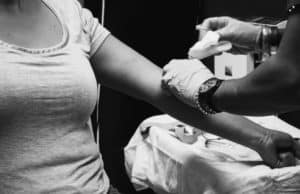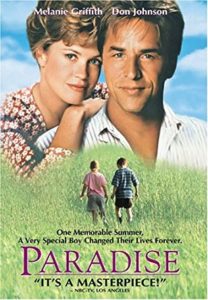The story of two young star-crossed lovers could have remained a small story. In fact, it did for about fifteen years. Two high school seniors – one murdered and the other convicted of the crime. It was 1999 in Baltimore, Maryland. There was an ice storm that closed school for two days. There was hockey and wrestling. There were cars, and jobs, and friends, and teachers. There were two devastated families of two good kids – one Korean-American and the other Pakistani-American.
If you haven’t had the inclination, time, or interest to listen to the Serial: Season One podcast, here is a very brief recap. On January 13, 1999, Hae Min Lee was murdered sometime after she left school after her last class at Woodlawn High School in Baltimore, Maryland. This was sometime after 2:15 pm. She did not show up as usual to pick up a young cousin at 3:00 pm. She and Adnan Syed had been boyfriend and girlfriend for at least a year, but Hae had a new, older boyfriend who was a coworker at one of the local LensCrafters stores.
Adnan Syed was a member of a large Muslim community of Baltimore County. Both he and Hae Min Lee were typical high school students, attending proms, participating in sports, and hanging out with friends. Both worked and both were good students looking forward to furthering their education in college in the fall.
Hae’s body was found in late February 1999 amongst the wooded underbrush of Leakin Park in Baltimore. Adnan was arrested for the murder the next morning on February 28, 1999. After a first mistrial, he was convicted of the murder on February 25, 2000. He was given a life sentence and has been in jail ever since, still pleading his innocence.
The podcast about this crime and conviction began as a segment of This American Life, a public radio broadcast produced by Chicago Public Media. Sarah Koenig, a staff producer at TAL, quickly realized that the story could not be told in one hour and Serial, a spin-off of TAL, was born and became one of the most popular podcasts in listening history. It debuted on October 3, 2014 and the last episode was aired on December 18, 2014. Since that time, with the help of legal experts and the publicity to an entirely international public, a post-conviction relief hearing lasted five days from February 3-9, 2016. On June 30, 2016, Syed was granted a new trial based on evidence that his attorney was ineffective and that important evidence related to cell tower locations was unreliable. Also important to the new trial is an alibi that was overlooked in 1999 and 2000. Adnan’s conviction has been vacated. However, a long road for Adnan is ahead as the State of Maryland is appealing the new ruling. Adnan’s attorneys can only hope for bail so that Adnan can return home and await a new trail which will take months and possibly years.
I became an obsessed and avid Serial listener late in the game. Episode 12 of Season One had aired weeks earlier and the spin-offs were all in full-swing before I caught on and joined the ranks of the “serial obsessed.” I hungrily binge-listened to all 12 hour-long episodes with a week. I couldn’t get enough of it. I talked it up, chatting endlessly about it, reading everything that I could find online.
I soon caught up with my favorite police chief and discussed the podcast (and case of Adnan Syed). Chief William Brooks is an advocate against wrongful conviction. He was, in fact, honored in 2013 by the Innocence Network at their annual conference held in Charlotte, North Carolina. They presented him with the 2012 Champion of Justice award. Brooks and other police officers favor reforms such as eyewitness identification and others that wrongfully convict innocent people. I admire Norwood’s police chief and I am always proud to know that not only is he my fellow colleague and department head in Norwood, but he is the current President of the Massachusetts Chiefs of Police Association and a member of the Executive Committee of the International Chiefs of Police Association.
After finishing Serial: Season One, many listeners were torn between skepticism of Adnan Syed’s innocence, and at the same time wistfully hoping that Syed would be granted a new trial. In retrospect, that is exactly what Sarah Koenig wanted: to leave her listeners questioning everything about the case. She did not intend to solve it.
I began to listen to the other podcasts about the murder of Hae Min Lee: Serially Obsessed, The Serial Serial, Serial Dynasty, Crime Writers on Serial, Slate’s Serial Spoiler Specials, and more. Only one, Undisclosed, was of any interest to me. After listening to a few episodes of the others, I found that most of them were too chatty, sensationalized, and opinionated.
Undisclosed began as a podcast that is described on its website as “a detailed examination of the State of Maryland’s case against Adnan Syed.” Attorneys Susan Simpson and Colin Miller were assisted by Rabia Chaudry to “revisit the case,” including updates on Adnan’s legal battle, the investigation, new or overlooked evidence, and facts and analysis that was not found in the Serial podcast. The important component of the Undisclosed podcast is that Ms. Chaudry has been working on Adnan’s defense for 17 years. Not only is she an attorney, but she is the sister of Adnan Syed’s best friend. She is close to the family and was a spectator the day that Adnan was convicted by a jury in 2000. Rabia Chaudry’s new book, “Adnan’s Story: The Search for Truth and Justice After Serial” was published in August and I read it as soon as I got my hands on it. While criticism of her involvement, her one-sided defense of Adnan, and her attacks on the State’s case, Chaudry’s book is packed with facts about the case. Her analyses and theories are included in the last chapters of the book and I have been further convinced of Adnan’s innocence. What haunts me, however, is that a killer other than Adnan Syed has not been found, investigated, or charged with the crime. I will be watching, and listening, in the future.
Charlotte Canelli is the library director of the Morrill Memorial Library in Norwood, Massachusetts. Read Charlotte’s column in the September 8, 2016 issue of the Norwood Transcript and Bulletin.


